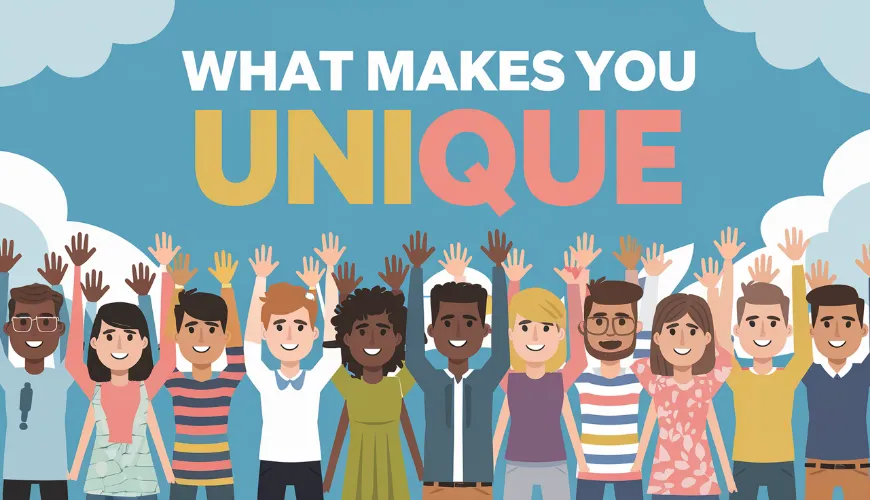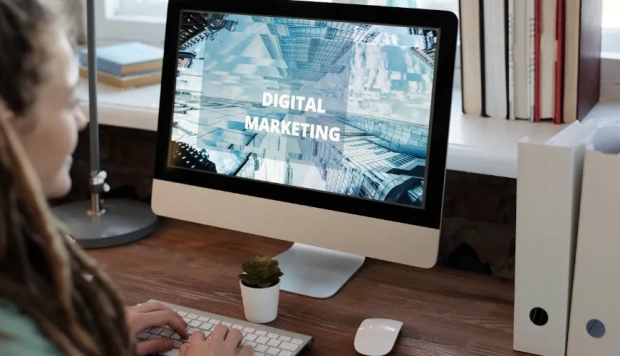What Makes You Unique and Standing Out in a World of Sameness

It's a question that stops job seekers mid-sentence, stumps entrepreneurs in boardrooms, and baffles even the most seasoned professionals: "What makes you unique?” At first glance, it seems simple enough. But peel back the layers, and you'll find that crafting a compelling, authentic response to this question can be surprisingly difficult.
Understanding what makes someone unique is more than just an exercise in self-awareness; it's a vital part of communicating value-whether in a job interview, a business pitch, or a personal brand. In a crowded world where resumes blur, products mimic each other, and messages compete for attention, your ability to articulate your distinctive qualities can make or break your success.
So what does it really mean to be unique? And how can you identify and communicate your own uniqueness in an honest, strategic way?
Why Uniqueness Matters in a Saturated World
We live in an era of abundance. There are more people, more businesses, and more content than ever before. According to Forbes, the average person sees between 6,000 and 10,000 ads every single day. In this environment, standing out is no longer optional-it's essential.
Whether you're interviewing for a new role, building a startup, or writing a dating profile, differentiation is the key to memorability. Employers want candidates who bring something new to the table. Consumers look for brands that reflect their values. Even social media algorithms reward original, engaging voices over generic ones.
In short, what makes you unique is often what makes you valuable.
The Difference Between Unique and Unusual
It's worth noting that being unique doesn't always mean being quirky or eccentric. You don't have to speak five languages, play professional chess, or have climbed Mount Kilimanjaro backward to justify your uniqueness. Instead, focus on the intersections of your skills, experiences, and perspectives that no one else can replicate.
Think of it like a fingerprint. Millions of people have similar lines and whorls, but the specific combination is entirely your own. The same applies to your professional and personal story.
For example, someone who's worked in both finance and graphic design might bring a critical yet creative approach to solving business problems. That blend is what makes them stand out-not either skill on its own, but the fusion of the two.
How to Discover What Makes You Unique
So how can you pinpoint your own uniqueness? It begins with self-reflection and ends with clarity. Here are a few guiding questions to help uncover your distinct edge:
- What do people consistently praise you for?
- What challenges have you overcome that shaped your perspective?
- Which skills or experiences do you have that are rare in your field?
- How do you solve problems differently from others around you?
- What values drive your decisions, even when no one is watching?
Answering these questions requires honesty and a bit of digging. But the insights you gain can help you craft a narrative that not only feels authentic but also resonates with whoever you're trying to reach.
Real-World Example: The Power of a Unique Perspective
Consider the story of Sara Blakely, the founder of Spanx. She didn't have a fashion background or an Ivy League MBA. What she had was a frustration-traditional undergarments didn't work under white pants. From that personal problem, she built a billion-dollar brand.
What made her unique wasn't just her perseverance or her product idea. It was her perspective. She approached an age-old industry from the lens of a real customer, not a fashion executive. That fresh viewpoint became her superpower.
"Innovation comes from looking at the world through a different lens," Blakely once said. And that's exactly what uniqueness often is: a lens that no one else has.
Crafting Your Unique Value Statement
Once you've identified what sets you apart, the next challenge is communicating it effectively. This is especially relevant in job interviews, networking conversations, or even on your LinkedIn profile.
A strong unique value statement is:
- Specific: Avoid vague phrases like "hard worker” or "team player.” Get precise about your strengths.
- Relevant: Tailor your uniqueness to the audience or industry you're addressing.
- Authentic: Don't try to mold yourself into someone else's idea of impressive. Stay true to your story.
Let's look at a few examples that illustrate this approach in action.
11 Sample Answers to "What Makes You Unique?” (and Why They Work)
If you're still unsure how to frame your own uniqueness, here are eleven more tailored examples across different strengths and situations. Each shows not only what makes someone unique but also why it matters to the listener.
1. The Data-Driven Decision Maker
"I combine strong analytical skills with creative problem-solving. At my last company, I used data visualization to uncover patterns in customer churn that the team hadn't seen, which led to a 15% retention increase." Why it works: It proves value through measurable results and shows the rare blend of logic and creativity.
2. The Multicultural Communicator
"Having lived in three countries and worked across five markets, I bring cultural fluency and adaptability that helps me build trust with global teams and clients." Why it works: Global experience is hard to replicate and directly relevant in today's interconnected world.
3. The Resilient Problem-Solver
"Early in my career, I faced repeated setbacks launching a product line. Instead of quitting, I iterated five times until it succeeded-teaching me perseverance and adaptability under pressure." Why it works: Employers and partners value resilience, especially in high-stakes environments.
4. The Tech Translator
"I specialize in making complex technology understandable for non-technical audiences. For instance, I trained a sales team on AI concepts, which helped them pitch products more confidently and close deals faster." Why it works: Bridging the gap between technical and business is a rare and valuable skill.
5. The Detail-Oriented Creative
"Unlike many creatives, I thrive on structure. I pair my design background with project management discipline, so my campaigns are not only beautiful but always delivered on time." Why it works: It counters a common stereotype (creative = chaotic) and shows balance.
6. The Customer Advocate
"I treat every role through the lens of the end user. At my last job, I shadowed customers weekly, which helped me improve the product roadmap and boosted satisfaction scores by 20%." Why it works: Prioritizing customer insight signals empathy and market awareness.
7. The Bridge Builder
"I'm often the person who connects departments that don't normally talk. My ability to translate finance needs into marketing language-and vice versa-has helped projects run smoothly." Why it works: Demonstrates collaboration and cross-functional influence.
8. The Lifelong Learner
"I dedicate 30 minutes a day to learning something new, from coding to negotiation. That habit has allowed me to stay ahead of trends and bring fresh solutions to my team." Why it works: Shows growth mindset and initiative without bragging.
9. The Purpose-Driven Professional
"I align my work with values of sustainability and ethics. In my last role, I reduced packaging waste by 40% while maintaining profitability." Why it works: It signals integrity and modern relevance, appealing to mission-driven organizations.
10. The Calm in Chaos
"In fast-paced situations, I'm the one people turn to. During a crisis, I stay composed, prioritize, and guide teams with clarity-keeping projects on track when others panic." Why it works: Highlights composure under pressure, a trait leaders crave.
11. The Unique Blend
"What makes me unique isn't a single trait but the blend: a marketer who codes, a strategist who sketches, and a leader who listens. That combination lets me see solutions others miss." Why it works: Reinforces that uniqueness often lies in intersections, not extremes.
The Risk of Imitation in a "Best Practices” World
Ironically, one of the biggest threats to uniqueness is the desire to conform. The internet is overflowing with "top answers” to interview questions, "proven templates” for cover letters, and formulas for personal branding. While these tools can be helpful, they can also lead to a dangerous kind of sameness.
When you copy someone else's voice or story, you dilute your own. What works for one person-say, being a confident extrovert-might not align with your strengths as a thoughtful observer. Authenticity always wins over imitation in the long run.
As Brene Brown famously said, "Imperfect and vulnerable, but real, is better than perfect and fake.” Especially when it comes to what makes you stand out.
Embracing Your Uniqueness in Everyday Life
Understanding and owning your uniqueness isn't just about career advancement or branding; it can lead to more meaningful relationships, stronger self-confidence, and a greater sense of purpose.
In fact, research from Harvard Business Review suggests that employees who feel they can be themselves at work are more engaged, more productive, and more innovative. When people hide parts of who they are to fit in, they often stifle what makes them powerful.
So how can you put your uniqueness into action?
- Share your ideas, even when they differ from the group.
- Approach problems using your unique strengths.
- Tell your story in a way that reflects your truth-not someone else's script.
Because in the end, no one else can be you.
Your Unique Path Forward
In a world that often rewards conformity, finding and embracing what makes you unique is a brave act. It requires self-reflection, courage, and a willingness to stand alone when necessary. But it's also the key to authenticity, connection, and long-term success.
Whether you're preparing for your next interview, crafting your brand, or simply trying to understand yourself better, remember this: Your uniqueness is not a liability-it's your greatest asset. Don't hide it. Amplify it. Let it lead you toward the places where only you can go.



